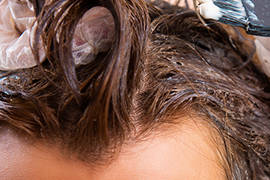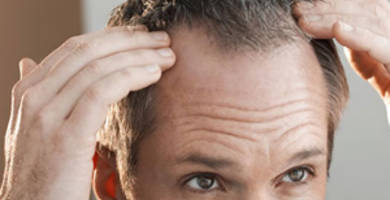Medications that cause hair loss: do you know them all?
By Prof. Dr. Soner Tatlidede 2019-09-11

Did you know that there are medications that cause hair loss? Surely, using medications to treat illnesses and different kinds of medical conditions has good effects on human body; but it also causes some secondary effects on our health, including hair loss. That´s why we always recommend to tell your doctor about what medicines are you taking, when you come to get a hair transplant using FUE in Turkey.
But it´s not just hair loss what what we are talking about; some medicines cause excessive hair growth, or changes in hair color and texture. Besides, hair loss caused by medications can have an important effect on self-confidence; however, if you stop taking that medicine, hair loss disappears as a secondary effect in most of cases.
How do medications provoke hair loss?
Medications interfere with the normal cycle of hair follicles, causing hair loss. In normal conditions, hair grows through the anagen phase, which lasts for 2 to 6 years; hair rests in the telogen phase, which lasts about three months; and at the end of the telogen phase, hair starts shedding and it is replaced by new hair. However, medications can cause two types of hair loss: as telogen effluvium and as anagen effluvium.
Telogen effluvium is the most common form of hair loss related to medications. It usually occurs within 2-4 months after receiving the medicine, and causes the hair follicles to go through resting phase (telogen) and fall out too early. People with telogen effluvium usually suffer from hair loss between 30 to 70% more than the normal fall-out rate.
On the contrary, anagen effluvium is the hair loss that occurs during the anagen phase, which is the active phase of the hair cycle; it prevents the matrix cells that produce new hairs from dividing normally. This type of hair loss usually occurs within a few days to weeks after taking the pill.
Chemotherapy used in cancer treatment is the most common reason of drug-induced hair loss, and it is a serious condition that causes most or all the hair on the head of the patient to fall out, as well as eyebrows, eyelashes and other body hair. In any case, the severity of drug-related hair loss depends on the type of drug, its dosage, and the sensitivity of the person against the drug.
Which types of medicines cause hair loss?
There are various types of medicines that are considered to cause hair loss, including:
- Acne medications containing vitamin A (retinoids)
- Antibiotics and antifungal drugs
- Antidepressants
- Birth control pills
- Anticlotting drugs
- Cholesterol-lowering drugs
- Drugs that suppress the immune system
- Drugs that treat breast cancer and other cancers
- Epilepsy drugs (anticonvulsants)
- High blood pressure medications (anti-hypertensives)
- Hormone replacement therapy
- Mood stabilizers
- Nonsteroidal anti-inflammatory drugs (NSAIDs)
- Parkinson’s disease drugs
- Steroids
- Thyroid medications
- Weight loss drugs
Chemotherapy medicines usually cause anagen effluvium hair loss. These medicines can harm healthy cells, including the matrix cells, as they attack cancer cells in the body.
Hair generally begins to fall out two weeks after the start of chemotherapy, and progresses more quickly after one to two months, according to the American Cancer Society. Hair loss is more severe and more frequent in people who take multiple chemotherapy drugs than in those who use only one drug.
Chemotherapy medicines that make hair fall-out
Chemotherapy medicines causing hair loss are as follows:
- Adriamycin®
- Cyclophosphamide
- Dactinomycin
- Daunorubicin
- Docetaxel
- Doxorubicin
- Etoposide
- Fluorouracil
- Ifosfamide
- Irinotecan
- Methotrexate
- Nitrosoureas
- Paclitaxel
- Tamoxifen
- Topotecan
- Vinorelbine
How is drug-related hair loss diagnosed and treated?
It is important to keep an eye on all the medications you take and to ask your doctor and pharmacist for potential side effects. If you experience hair loss after starting taking a medicine, it is very likely that your hair will come out again after you leave the pill; but if stopping the medicine does not correct the hair loss, you may need to be treated with medications such as finasteride (Propecia) or minoxidil (Rogaine), which can slow hair loss.
There is a method that can help prevent hair loss during chemotherapy treatment. This is referred as scalp hypothermia and consist on placing ice packs on the scalp a few minutes before the chemotherapy; cooling off the head skin reduces the blood flow to the hair roots, which makes difficult for chemotherapy drugs to enter the follicular cells and damage them.
Cooling also reduces biochemical efficacy by making the hair follicles less susceptible to damage from chemotherapy drugs. However, a concern about this method is that the chilled area is at risk of recurrence of cancer because of the lack of full-dose medicine due to vasoconstriction by cooling.
As generally occurs with other treatments and medications that cause hair loss, after chemotherapy ends the hair usually grows back up quickly, but changes in the hair colour and texture can occur; in rare cases, hair may be thinner after this treatment, too. In these cases, using minoxidil can help restore hair growing-up slowly.









